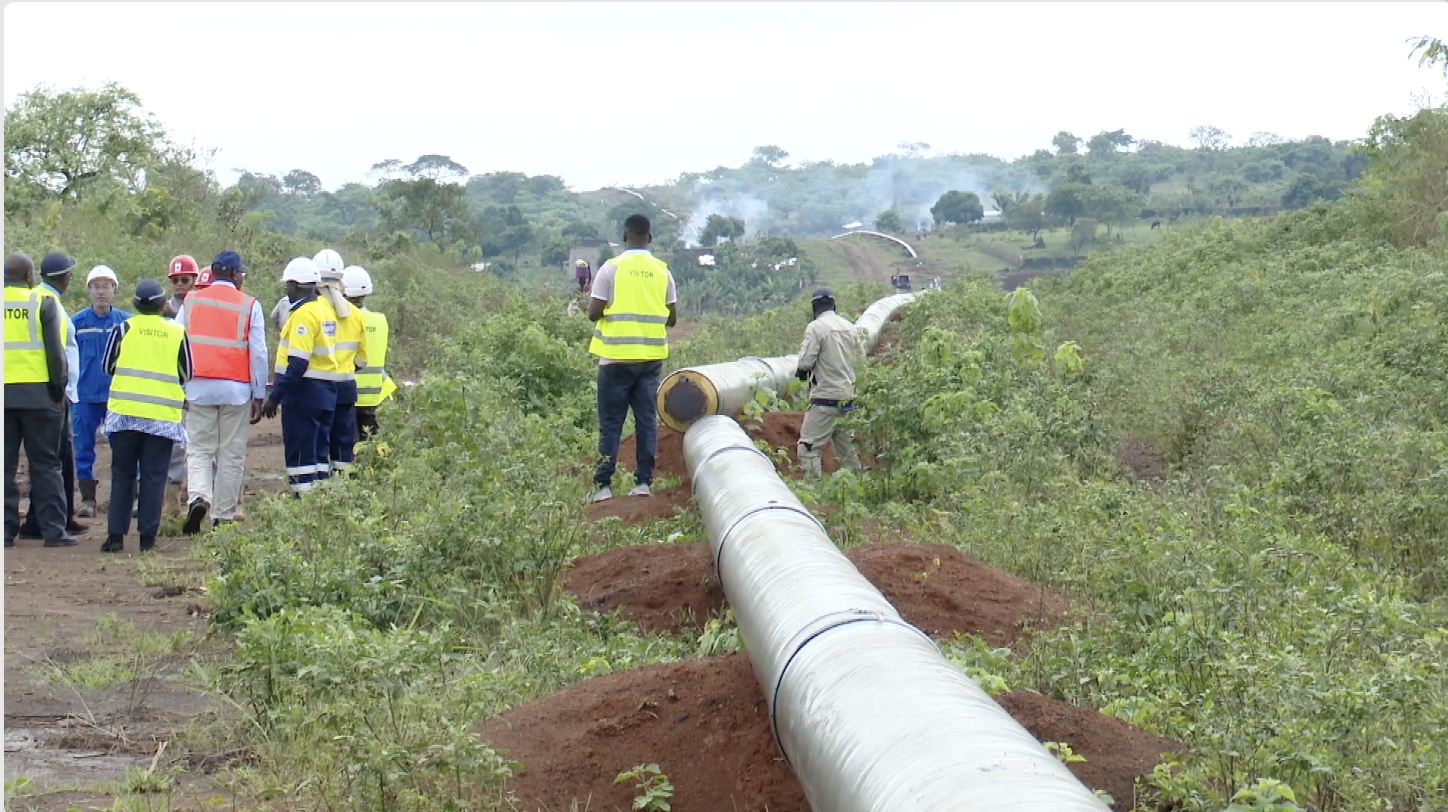Progress, challenges surrounding East Africa Crude Oil Pipeline Project
Saturday April 20 2024

EACOP under construction.
The Ministry of Energy and Mineral Development has expressed confidence in the ongoing progress of the East Africa Crude Oil Pipeline (EACOP), highlighting significant advancements in land acquisition and compensation efforts.
Collaborating with the government, the Petroleum Authority of Uganda has disclosed that 92% of individuals affected by the project have received compensation. However, amidst this progress, some affected persons are contesting the compensation in court.
The genesis of the EACOP dates back to November 2017, when President Museveni and Tanzanian President John Pombe Magufuli inaugurated its construction in Hoima. Spanning 1,443 kilometers, the pipeline aims to link Uganda's Albertine Graben region to international oil markets via a terminal at Tanga, Tanzania, traversing 10 districts in Uganda and 24 in Tanzania.
Land acquisition and compensation pose substantial challenges, with concerns raised about potential delays should legal disputes favor affected communities. Dickens Kamugisha, CEO of the Africa Institute for Energy Governance, cautioned that such rulings could impede the project's progress.
Currently, 12,435 acres have been acquired for the EACOP, with 3,660 affected persons, of which 2,740 are in Uganda. Ismael Nsereko, EACOP’s Stakeholder Engagement Coordinator, reported that 95% of landowners have permitted access, with 93% already compensated. However, some claimants have rejected compensation offers and resorted to legal action.
Environmentalists also voice concerns about ecosystem disruptions and carbon emissions, estimating the pipeline could emit 20 million tons of carbon gases. The Petroleum Authority of Uganda assures that safety measures, including thicker coatings and intrusion detection systems, have been implemented.
Energy Minister Ruth Nankabirwa emphasized Uganda's commitment to the project's success despite challenges. With 300 kilometers' worth of pipes already in the country, preparations for storage yards are underway, underscoring Uganda's determination to advance its oil and gas sector infrastructure.


